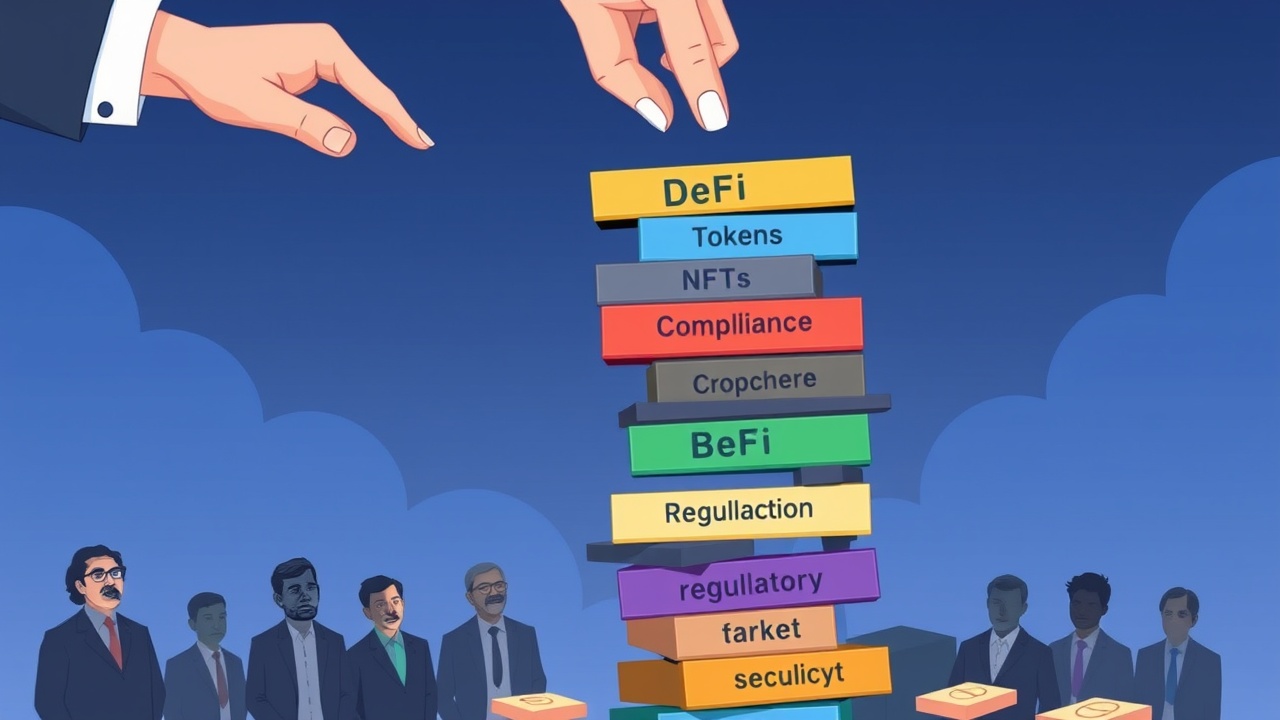Concerns About Cryptocurrency Regulation
During a recent SEC Speaks event, Caroline Crenshaw, the only Democratic Commissioner on the US Securities and Exchange Commission, expressed her concerns regarding the agency’s current approach to regulating the cryptocurrency sector. She articulated that the SEC has engaged in a precarious balancing act, likening it to a game of “regulatory Jenga,” where the removal of certain regulations could jeopardize market stability.
Challenges Faced by the SEC
Crenshaw pointed out that the SEC has experienced staffing shortages and has resorted to using informal staff guidance to effectively undo established rules without conducting the necessary public discussions or thorough assessments. This trend has created a situation where the agency seems less inclined to enforce existing laws rigorously, particularly in the rapidly evolving crypto market, a situation she has termed “regulation by non-enforcement.”
Concerns Over Enforcement Erosion
“I am deeply troubled by the Commission’s abandonment of swaths of our enforcement program.”
– Caroline Crenshaw
Crenshaw also criticized the agency for its recent settlements, including one involving Ripple, and emphasized that the 2022 collapse of FTX exemplifies the potential fallout of inadequate regulatory oversight, suggesting that risks in the crypto space have not diminished but rather have been ignored as calls for comprehensive regulation grow softer.
Contrasting Views Among SEC Commissioners
In stark contrast, her fellow Republican commissioners appeared to endorse a more lenient stance towards the cryptocurrency industry. SEC Chair Paul Atkins remarked that the crypto market has been in a state of uncertainty under SEC oversight and stressed the need for the agency to foster innovation rather than hinder it. Commissioner Hester Peirce, who leads the SEC Crypto Task Force, further argued that many cryptocurrencies should not be classified under securities laws, stating that current trading practices often do not align with initial investment contracts.
Mark Uyeda, another Republican Commissioner, supported the call for clarity and assurance that enforcement actions would not serve as the primary method for the SEC’s future policy-making. The ongoing divide within the SEC reflects broader tensions about how best to approach the regulation of an industry that continues to interlace itself with traditional financial systems, underscoring the necessity for a cohesive and thorough regulatory framework.
Conclusion
As the landscape of digital currency evolves, both the need for oversight and the debates about how such regulations should be implemented are becoming increasingly critical to the integrity of the financial markets overall.




